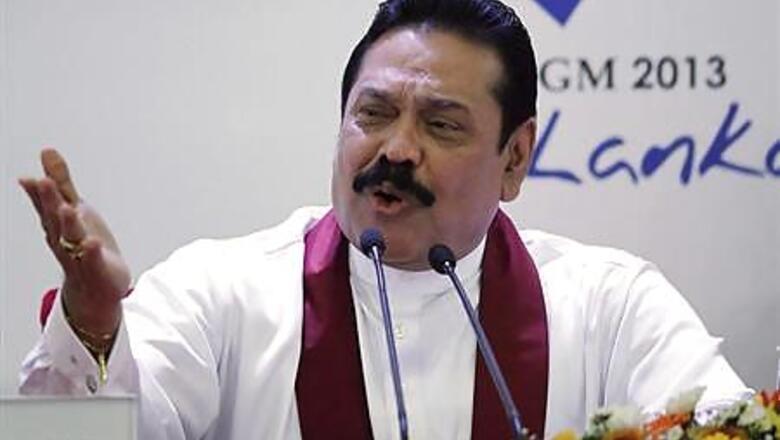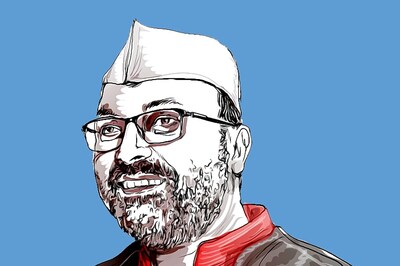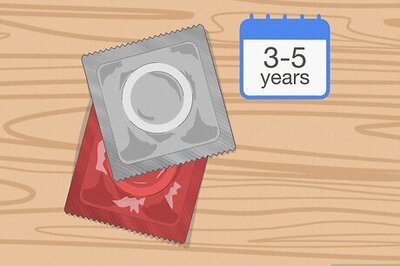
views
Sri Lanka's president defended his government's human rights record on Thursday, saying he had "nothing to hide", but on the eve of a Commonwealth summit in Colombo he faced fresh questions over the treatment of ethnic minority Tamils.
Mahinda Rajapaksa said a system was in place to deal with rights violations, amid allegations of abuse four years after a civil war against Tamil separatists ended. The concern prompted Canadian Prime Minister Stephen Harper to skip the summit.
"We have a legal system in Sri Lanka," Rajapaksa said in Colombo, where a three-day meeting of leaders from the Commonwealth of mostly former British colonies begins on Friday.
"If anyone wants to complain about the human rights violations in Sri Lanka, whether it is torture, whether it is rape ... we have a system," he said.
"If there (are) any violations, we will take action against anyone. So we are open. We have nothing to hide."
British Prime Minister David Cameron, speaking in India on the way to Sri Lanka, called for greater freedom of the press, an end to torture and a full investigation into war crimes.
"There need to be proper human rights (and) democracy for the Tamil minority in that country," he said in New Delhi ahead of a meeting with Indian Prime Minister Manmohan Singh, who will also miss the summit, although partly because of domestic pressures.
Tamil rebels based in the north of Sri Lanka fought government forces for 26 years until the army crushed them in 2009.
A UN panel has said thousands of civilians, most of them Tamils, were killed in the final offensive to defeat the rebels. Both sides committed atrocities, but army shelling killed most of the victims, it concluded.
The government says Sri Lanka is on the path to reconciliation, helped by fast economic growth, and Rajapaksa - who had hoped the Commonwealth meeting would cast his country in a positive light - underlined the benefits of peace.
"Today, no one is getting killed," he told a news conference. "We have finished that war, that menace. People are relieved."
Cameron, who has argued that attending the Commonwealth meeting was preferable to boycotting it, said he would visit the Tamil-dominated northern city of Jaffna to push his case for greater rights there.
"I think it's very important to go. There needs to be proper inquiries into what happened at the end of the war," he said.
Cameron added that, while determined to deliver a "tough message", there had been progress in terms of political rights in the north and reconciliation with minority groups.
Sri Lankan officials have bristled at what they see as Cameron's interference.
"We are a sovereign nation. You think someone can just make a demand from Sri Lanka?" government spokesman Keheliya Rambukwella told the BBC. "We are not a colony. We are an independent state."
But the build-up to the summit has been overshadowed by an opposition protest in Colombo, a slew of reports from rights groups criticising the government and an incident on Wednesday involving a foreign television crew prevented from visiting the north.
A train carrying a crew from Britain's Channel 4, which has previously reported on alleged war crimes in Sri Lanka, was stopped by pro-government protesters.
Also on Wednesday, a car carrying opposition leader Ranil Wickremesinghe was attacked by hundreds of protesters in the capital, Colombo. He was not hurt.



















Comments
0 comment